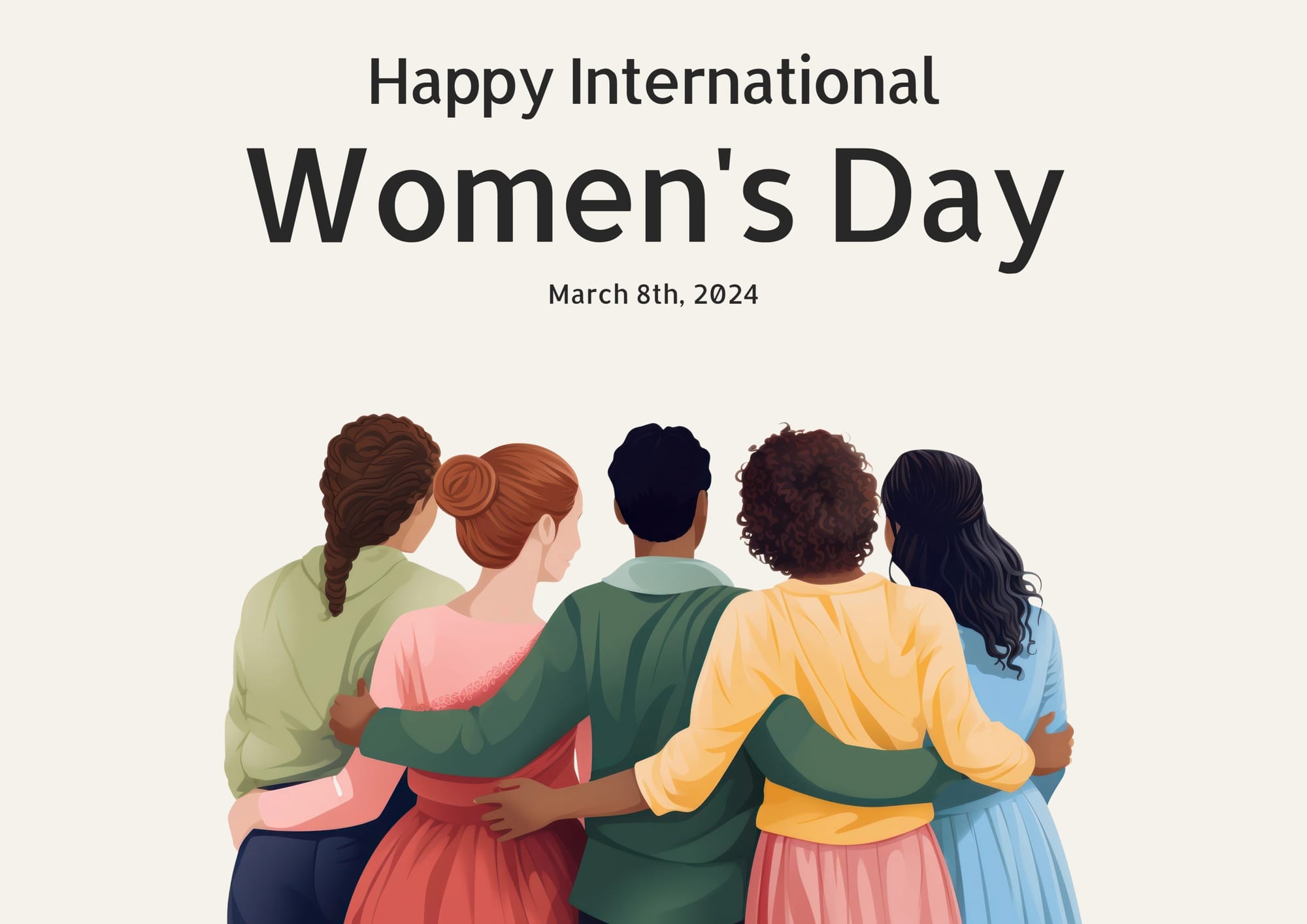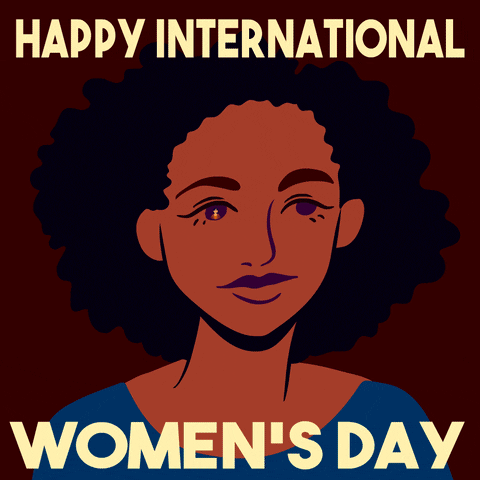
We all have the power to implement change, and who better to prove it than the women at the forefront of dynamic, world-changing movements? On this International Women's Day, we celebrate these inspiring leaders and the initiatives they are championing, lighting the path towards a just and equitable future for all. From campaigns addressing climate change to efforts promoting access to education and healthcare, these women-led initiatives are not only symbols of gender equality but also catalysts of progress and transformation in our society. Join us as we highlight some of the key figures and initiatives that are raising voices, making changes, and setting new benchmarks for all aspiring world-changers out there.
"Never doubt that a small group of thoughtful, committed, citizens can change the world. Indeed, it is the only thing that ever has."
These words, often attributed to cultural anthropologist Margaret Mead, perfectly encapsulate the power of collective action. Each and every effort matters, and it's these combined efforts that lead to significant societal advancements. Here, in this article, you'll get acquainted with not just a few, but a whole host of remarkable women who, through their relentless dedication, have instigated impactful change in myriad ways. Together, they are proof that change isn't a luxury reserved for the select few, but an opportunity for us all to seize.
Prominent women leaders spearheading global movements in social justice, climate change, education, and health
Let's focus on some truly inspirational women who are fearlessly leading the charge around the globe. They come from diverse backgrounds, yet all share a commitment to making this planet a fairer, healthier, and more just place for everyone. These women leaders, standing at the forefront of social justice, health equity, educational inclusivity, and environmental change, show us how vital female voices and perspectives are to creating a brighter future. Get ready to be inspired by their unbeatable drive, relentless spirit, and meaningful contributions.
- Simone de Beauvoir: A celebrated French writer, philosopher, and social theorist, Simone de Beauvoir is considered one of the foundational figures of modern feminism. She espoused the conviction that one is not born but rather becomes, a woman. Her seminal work, "The Second Sex," deconstructed the societal construct of women being the inferior other and, in doing so, struck a powerful blow against patriarchal norms worldwide.
- Greta Thunberg: At the tender age of 15, this Swedish environmental activist singlehandedly initiated the School Strike for Climate. The movement, also known as Fridays for Future (FFF), saw Thunberg consciously skip school to protest outside the Swedish Parliament, demanding stronger action on global warming. This bold act sparked an international revolution, leading to organized strikes by students around the world.
- Christiane Rochefort: Imbued with a profound sense of social justice, French author Christiane Rochefort used her literary prowess to challenge societal norms regarding gender and sexuality. Through her novels and her prominent role in feminist movements, she has significantly contributed to breaking down stereotypes and pushing for equality.
- Malala Yousafzai: The youngest-ever Nobel laureate, Malala Yousafzai stood up for girls' right to education in her native Pakistan, even in the face of violent extremism. Surviving a life-threatening attack, she has continued her fight on a global scale and significantly raised awareness on the importance of girls' education and empowerment.
- Elizabeth Cady Stanton and Rosemary Radford Ruether: As leading figures in Christian feminism, Stanton and Ruether have sought to reinterpret Christian theology from a feminist perspective. Their contributions have redefined traditional gender roles and supported a more inclusive understanding of religion that promotes equality and justice.
What are some global campaigns led by women that have made a significant change?
As we celebrate Women's Day, it's important to remember that the strides we've taken toward gender equality and societal change didn't occur in a vacuum. They are the products of tireless efforts, sometimes quiet and often clamorous, led by courageous women who dared to challenge the status quo. From the barricades of suffragettes to the intellectual battlegrounds of academia, these are movements that redefine boundaries and reshape our perspective of what is possible. These women-led initiatives are catalysts, igniting change not only in issues that directly touch women's lives but also on the broader canvas of climate change, education, health, and social justice. So let's dive in and explore how these movements have been shaping our world and adding tear and wear to the glass ceiling.
- The Women's Suffrage Movement: Spearheaded by groundbreaking figures such as Alice Paul and Inez Milholland, the Women's Suffrage Movement was a crucial crusade for women's rights. The first suffragette parade took place in Washington, on the eve of President Woodrow Wilson's inauguration, garnering attention and support for the cause. Despite facing verbal and physical abuse from spectators, these brave women illuminated the harsh realities of gender inequality. Their struggle ultimately led to the 19th Amendment in 1920, granting women the right to vote, thereby shifting power dynamics within society forever.
- Second-Wave Feminism: Building on the foundations of first-wave feminism, the second wave emerged in the 1960s, further challenging societal norms around women's roles, reproductive rights, and gender issues. Iconic figures in this movement include Betty Friedan, whose novel "The Feminine Mystique" shed light on the dissatisfaction of many housewives, helping to break down the cliche of women's fulfillment derived solely from motherhood and marriage. Simultaneously, Simone de Beauvoir's "The Second Sex" refined feminist discourse and continued the narrative of equality.
- Health Equality Act Advocacy: This movement emphasizes health as a fundamental women's rights issue. Crystal Eastman was among the early advocates who saw the importance of birth control for women's participation in society. By championing access to women's health services, this movement has enormously contributed to gender equality by empowering all women to make choices about their bodies and futures. The ongoing fight continues globally, reforming healthcare systems and policies to ensure women's comprehensive healthcare access.
- Climate Justice Movements: Increasingly, women are also leading the charge in environmental advocacy. Figures like Greta Thunberg have revolutionized conversations around climate change, mobilizing waves of young people to demand immediate action from world leaders. These organizations are fighting for our planet while simultaneously highlighting the intersections between gender inequality and environmental devastation – emphasizing how climate change disproportionately affects women and marginalized communities.

How have these movements contributed to achieving gender equality?
The incredible transformations sparked by these women-led movements have made remarkable strides toward achieving gender equality. By persistently challenging the status quo, spotlighting gender biases, and demanding change, these movements have shifted societal understandings and expectations of gender roles.
One significant impact of these movements is the increasing presence of women in positions of power, roles traditionally dominated by men. You see this in corporations, politics, and grassroots communities worldwide, proving that the voices and perspectives of women are not only valuable but essential.
Consider the transformative power of the Women's Movement grounded in demanding equality between men and women. It challenged patriarchal societal structure that relegates women to a position of inferiority. Through the four phases of this movement, women transitioned from being perceived primarily as domestic beings to becoming active, respected, and equally valued community members.
Similarly, the increased entry of women into the workplace, spurred on by these proactive movements, has challenged and continues to redefine traditional gender roles and divisions of labor within households. While challenges persist, the strides taken in this direction have been phenomenal.
Transnational feminism and nationalist feminist movements have played a pivotal role in broadcasting women's issues on a global platform. The intersectionality of these movements, encompassing race, ethnicity, class, and gender, have made them more inclusive and effective at challenging systemic inequalities not just along gender lines, but intersectionally.
The shift is ongoing, and though there's still a long way to go in achieving gender parity, these movements have irrefutably reshaped societal structures more favorably for women, yielding benefits not just for women, but for society at large.
So when we ask ourselves how these women-led movements have contributed to achieving gender equality, the answer is monumental. They have, and are continuing to, challenge gender norms, break down barriers, and pave the way for a future where gender equality is a given, not a goal.
Here are some tangible societal benefits that have resulted from these women-led initiatives
Women-led initiatives have been instrumental in ushering significant societal benefits globally. Here are some notable examples:
Shift in Traditional Gender Roles: The amplified voice of women through their initiatives and movements have effectively challenged traditional gender roles. As women continue to break ground in fields formerly dominated by men, they are shifting societal perceptions about gender capabilities, helping to engender more balanced roles in both home and workplace settings.
Promotion of Economic Growth: The establishment of women-owned businesses, expansion into new job avenues, and rise in women entrepreneurship have positively impacted local and global economies. While they may still face barriers, these businesses contribute significantly to economic growth, job creation, and community development.
Health Equality: Health-centric initiatives led by women have brought women's health issues to the forefront. This has led to increased awareness and improvements in health policies, benefiting not only women but also enhancing the community's overall health standards.
Democratic Revitalization: The spurt of feminist and democratic protests led by young women globally has breathed fresh life into democratic principles and practices. These assertive demonstrations are not just reshaping political landscapes, but are fostering greater civic participation and demanding accountability and transparency in governance.
Norm Transformation: Women-led activism has transformed gender norms. These initiatives have helped redefine societal expectations and behaviors, creating more gender-equitable societies.
Women-led movements are a beacon for change, inspiring and empowering others to challenge societal norms, demand equality, and foster progress. The benefits are all-encompassing, reshaping societies to be more inclusive and equitable.
As we celebrate Women's Day today, let's honor the countless women who lead these transformative movements. Their relentless pursuit of progressive change and gender equity has already improved countless lives and is shaping a brighter, more equitable future for all. Let's not only praise their achievements but also learn from them, taking their passion, vision, and resilience into our own lives.
But, while we acknowledge the monumental strides made through their efforts, we must also recognize that the journey is not over. More than ever, we need to support these movements and join the struggle for gender equality, education, health, and environmental sustainability. Together, through our collective efforts, we can continue the positive momentum. So, on this Women's Day, let's remember the power of women-led initiatives and stand in solidarity with women worldwide until equality, freedom, and justice are realities for all.





